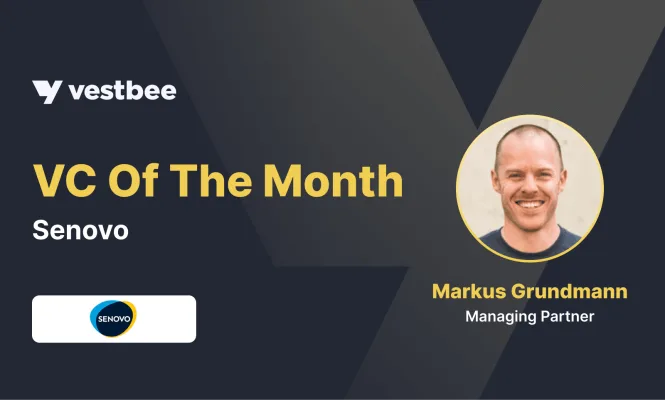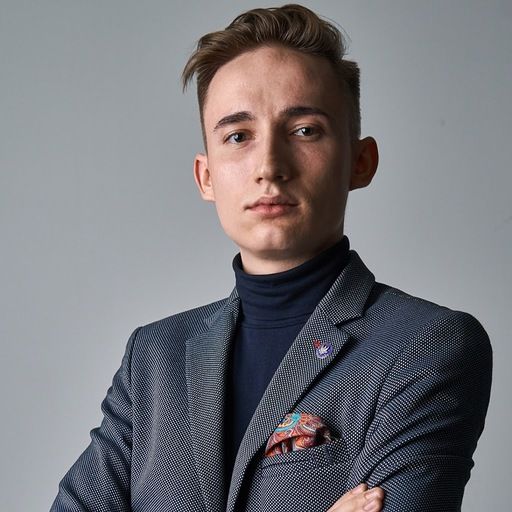Senovo is a European venture capital firm that invests in B2B SaaS companies at late seed and Series A stages. It focuses on supporting European founders building global B2B SaaS leaders. With a selective approach, each partner makes 1-2 investments annually, enabling the firm to provide in-depth, hands-on support to its portfolio companies. Markus Grundmann, Partner at Senovo, told Vestbee more about the fund’s strategy and investment approach.
Fund strategy overview
Geography: EU
Preferred industries: B2B SaaS, mid-market & enterprise software
Investment ticket: €1-5 million
Company stage: late seed & Series A
Product type: mid-market & enterprise software
Product stage: shipped & first traction
Revenues: min. €300,000 ARR
Q&A with Markus Grundmann, Partner at Senovo
What are the five main things you look for in a startup?
A team with a deep understanding of their space & the ambition, grit, and determination to win a global market (repeat 5x).
What disqualifies a startup as your potential investment target?
We focus on the ability to scale. Startups that lack a clear strategy for building a strong "GTM machine" might struggle despite an excellent product to achieve that kind of scalable growth. Founders need to be in control — not passengers in an out-of-control journey. The lack of strategic clarity or readiness for scaling disqualifies a potential investment for us.
What, in your opinion, differentiates the best founders from the rest?
Every founder team is unique, but the best have an extraordinary ability to attract and retain top-tier talent. It’s not just about the product or idea — it’s about the people who build and grow it.
What should startups consider before making a deal with a VC fund?
You are not simply partnering with a fund; you’re choosing a person within that fund. This person will understand your vision and support you along the journey. Choose someone you can trust and communicate openly with, beyond brand names or fund size — it’s the personal connection that often makes the difference.
What is your approach to startup valuation and preferable share in the company?
We invest in late seed and series A rounds. That means that we usually see valuations of €10-25 million. In those phases total dilution is usually somewhere around 20%-25%. We try to stick to those market standards since they are proven to work well and allow us to build large and ambitious companies.
How do you support your portfolio companies?
We are a high-conviction investor. That means we are very selective, and a partner in our firm makes only 1-2 investments per year. This means we care deeply and have the time to help if needed. That ranges from helping with financial modeling (we’ve also “open sourced” our template), GTM workshops, pricing discussions or support with hiring key talent.
What are the best-performing companies in your portfolio?
We’ve been fortunate to work with some amazing companies. To name a few: Manta (acquired by IBM), Riskmethods (acquired by Sphera), Parloa, Quantilope or HiveMQ
What are your notable lessons learned from investments that didn’t work out as expected?
Empathy is a powerful lesson. The startup journey is incredibly binary — you’re either pushing ahead at full speed or cautiously preserving cash when times are tough. There’s very little middle ground. It’s emotionally challenging for founders to balance these extreme shifts, and empathy as an investor is crucial to being a supportive partner.
What are the hottest markets you currently look at as VC, and where do you see the biggest hype?
AI is absolutely leading the charge—both in terms of opportunities and hype. 2 decades after the invention of the cloud application and the subsequent rise of big data, we are now finally in the position to bring the benefits and ROI to the real world. This is incredibly exciting – but also, of course, will lead to considerable market hype and overfunded companies.
In your view, what key trends will shape the European VC scene in the coming years?
The European VC scene will drastically change in its approach to dual-use, driven by an increased focus on the national security of the European states. This comes with a generally increased focus on deep tech — something I am looking forward to as a software engineer by training.
Finally, I see both a) bigger funds emerging, which means a more robust and competitive environment for founders, and b) more specialists (like Senovo), which means more partners who truly understand the unique needs and challenges of various business models, industries, and company stages.







